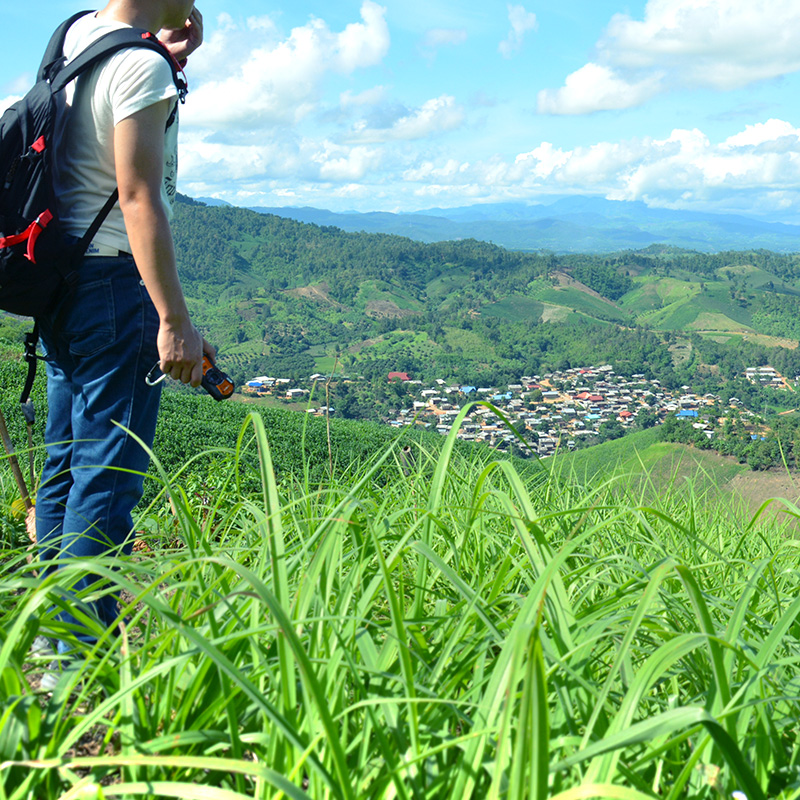みなさん、こんにちは。海外事業部の高田です。
現在、オイスカでは、生物多様性や環境保全に関するスピーチ原稿を募集しています。
オイスカが関係するアジア・太平洋地域等の他国でも同時募集されているもので、ぜひ皆さんにもご参加ください!【↓募集ページはこちら】
『何を書いてよいか、わからない~』そういった方へ、あくまで一例ですが、こんなことをヒントに筆をすすめていただけませんか。
- 今までに授業や家庭で育てた植物や動物のこと
- 通学路や家の近くで見つけた植物や、触れ合う機会のあった動物のこと
- 自分の住んでいる地域にしか存在しない植物や動物のこと
- ふるさとの自然や環境のこと
- 日々の食事や生活で関わる動植物や周辺環境のこと
- 社会見学やハイキングなどで訪れた地域の特有な環境(川や公園や森)のこと
- 仕事やボランティア活動で感じた環境を守る大切さや、生き物のつながりのこと
- 授業、読書、インターネット、テレビや研究などを通じて知った「環境問題」や「生物多様性」のこと
- 未来に向けて環境を守ったり、良くしていくために、自身が取り組んでいること、取り組みたいこと
現在だけでなく、過去も振り返っていただき、「生き物」や「自然」について感じたことや学んだこと、そしてそれらと自分や人間社会との『つながり』についての考えを教えてください。また考えだけでなく、それらの生き物や、その生き物を支える「環境」を守るために必要と思う取り組みアイディアや、これからやりたいことなど、これからの行動についても盛り込んでみてください。
「生物多様性」は難しいと感じてしまいがちですが、「生き物のつながり」のこと。身の回りの植物や動物と自分自身とのつながりなど、日々感じていることや自慢したいことなどを、皆様から教えていただけるのを楽しみにしています。
応募締め切りは6月14日(月)中です。原稿をメール(gyf2021@oisca.org)にてお送りください。また審査対象外ですが、原稿とあわせて、スピーチ動画もスマートフォンなどでお撮りいただいてお送りいただくことも大歓迎です。
皆様からのご応募、お待ちしています。
※ こちらもあくまで参考ですが、過去に寄せられたスピーチをご紹介します~
■スピーチ例①(青年部門Aさん)
○○県にある私の実家のすぐ目の前には、大きなため池があります。春から秋にはどこからともなく虫の音や低いカエルの合唱が聞こえ、冬になると渡り鳥が飛んできます。小中学生の時には、半分凍った水の中を、渡り鳥が悠々と泳ぐ様子を横目に通学するのが日常でした。また、家から学校に向かって暫く歩くと、田畑の用水路につながる小さな川があり、5~6月ごろにはたくさんの螢が飛んでいました。川に落ちないように気を付けながら、小さな明かりを灯しゆるやかに飛ぶ姿をなんとか手に取ろうと奮闘したことを思い出します。このように、私の幼少時代の思い出はさまざまな動植物との記憶がセットで思い出されます。時とともに多少風景は変わってしまいましたが、今でもそれらの光景は「ふるさと」の風景として記憶に残っています。
しかし、ある日偶然見たテレビ番組で、その「ふるさと」を形づくる自然環境が、世界各地であるべき姿を失おうとしていること、そしてそれに伴い、植物だけでなく動物たち、ひいては私たち自身も存続の危機にさらされていることを知りました。私の「ふるさと」だけではなく、世界中の皆の「ふるさと」である地球の問題に対し、誰でもなく私たち自身が取り組まなければならないと強く感じました。
それから、より世界全体の課題に関心を持った私は、大学時代に国際協力を専門に学び、同学部の友人の紹介で、現在の勤務先であるNGO団体の広報担当として入職しました。団体の活動は、まさに環境、農業、「ふるさとづくり」と、私がこれまで関心を持ち続けていたことに関わるものでした。しかし、縁があって入職したものの、そうした分野の知識や経験のない私に、一体何ができるのだろうかと時折考えることがありました。一方で、広報担当の立場からさまざまな活動に関わる中で、そこで得た知識、体験、人の縁を糧に、多くの方に向けて世界の課題やそれに対する取り組みを発信することで、たくさんの動植物や人々が共存し、あるべき「ふるさと」をつくり守っていく、そんな仲間づくりをすることはできるのではないかと考えるようになりました。
そして、今後一層その役割を果たせるように、私は私の出来る広報業務、“「ことば」を使った仲間づくり”によって、生物多様性と環境保全に貢献していきたいと考えています。
■スピーチ例②(青年部門Bさん)
If somebody ask me if how I want to be remembered, my answer definitely is someone who loves nature and loves life. I am ●● and born and raised in a rural community in the northern part of the Philippines.
Growing up, I was exposed in different kinds of disasters such as typhoon, flood, and earthquake. It was common for me to experience of having no electricity for up to one month as an aftermath of a strong typhoon. With this kind of experience, I was a bit surprised when a Japanese colleague was worried as if it was the end of the world when the Tokyo Electric Company announced partial rotational blackouts as a consequence of the March 11, 2011 disaster. First world problem.
Idealistic as it may sound but I have always been passionate of helping to create a world with less suffering. Knowing that I cannot do it on my own, I felt the need to associate myself with an organization with mission to help improve the quality of life of the marginalized people and enable them to live a life with dignity.
Working as an NGO officer for more than 10 years, I am partial with the Environmental Conservation and Protection Program. Under this program, I felt honored to be part of the reforestation projects to rehabilitate the degraded forests in partnership with the local communities in the Philippines, as well as the Coastal Forest Restoration Project to rehabilitate the black-pines wiped out by the March 11 tsunami in Tohoku, Japan.
Now that disaster is increasing in number and intensity and is taking a terrible toll in human lives and their sources of income, I support experts` recommendations to properly and effectively managed nature (forest, mangrove, corals reefs) to mitigate the impact of disaster and improve biodiversity. When this is taken into account and with everybody`s cooperation, it can decrease the vulnerability of the people and their livelihoods.
Moreover, in the middle of corona pandemic, experts emphasize the linkage of infectious diseases to the destruction of wildlife habitats and biodiversity loss. I am happy to be part of an organization that is committing more for the protection and conservation of natural habitats for the prevention of future disease outbreaks.
Meanwhile, in my daily life, I have been cautious of my carbon footprint as influenced by friends and people around me. Prior to corona, extensive travel overseas is one of my guilty pleasures. It is unfortunate that the carbon sequestered by the trees that I have somehow helped planted are not enough to offset the carbon emitted while I was travelling.
In my own little way, I lessen the environment`s burden by gradually transitioning into being a minimalist and by the following: composting my kitchen waste, having a small garden for vegetables and herbs, carrying with me refillable water tumbler or water camelback when hiking, refrain from eating/buying process food, buying my books second-hand, refrain from using single-use plastics, and others.
May I end this speech by sharing with you the words of one of my favorite philosophers, “I make myself rich by making my wants few”- Henry David Thoreau. Hope you have a great day!

